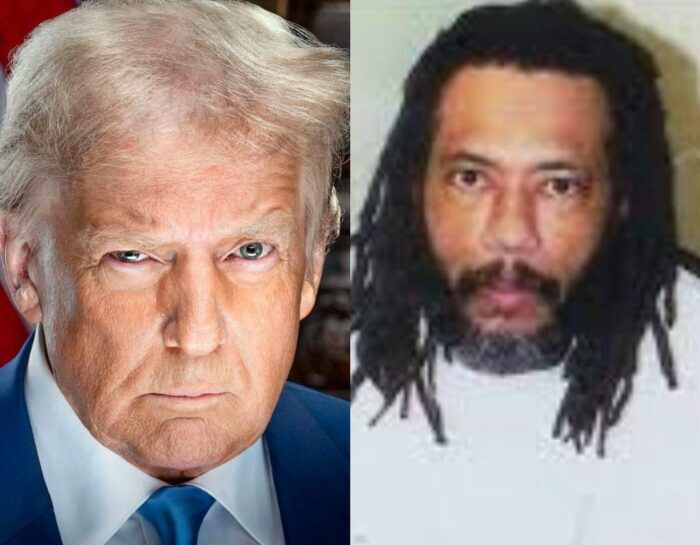By Yusuf Mohammed
In a development that is stirring strong reactions across political and cultural lines, a growing number of Black Americans are applauding President Donald Trump for his role in advancing efforts to release Larry Hoover, the once-feared leader of the Gangster Disciples who has since renounced violence and advocated for peace from behind bars.
Hoover, who was convicted in the 1990s on federal charges related to drug trafficking and organized crime, has long been a controversial figure. However, supporters argue that his decades in prison, along with his public renunciation of gang violence, demonstrate rehabilitation and a shift toward community uplift.
Trump’s administration began exploring clemency options for Hoover during his term, influenced in part by outreach from artists like Kanye West and community leaders who saw Hoover’s release as symbolic of broader criminal justice reform. While the final push for Hoover’s release came under mounting bipartisan and public pressure, many in the Black community credit Trump for laying the groundwork.
“Say what you want about Trump, but he actually listened,” said Janelle Moore, a Chicago-based activist. “When others ignored us, Trump was willing to meet with people from our communities, including Kanye, and he took steps in the right direction.”
This praise is not without controversy. Critics argue that Hoover’s legacy remains tainted by the violence associated with the Gangster Disciples and warn against romanticizing his past. Others say Trump’s involvement is more about political optics than a sincere commitment to justice.
Still, supporters argue that Hoover’s transformation is genuine and that his release represents a deeper opportunity for healing and leadership within communities ravaged by cycles of incarceration and violence.
“Hoover is not the same man he was in the ’90s,” said Pastor Eric Tillman of Detroit. “And if someone like Trump can help bring justice to our brothers locked up unfairly or excessively, then credit should be given where it’s due.”
Trump’s advocacy for Hoover has added to his surprising appeal among segments of the Black electorate, particularly those focused on criminal justice reform, economic opportunity zones, and dissatisfaction with traditional Democratic leadership.
As the political landscape shifts ahead of the 2026 midterms, Hoover’s release could remain a flashpoint issue, symbolizing both redemption and the power of unconventional alliances.



